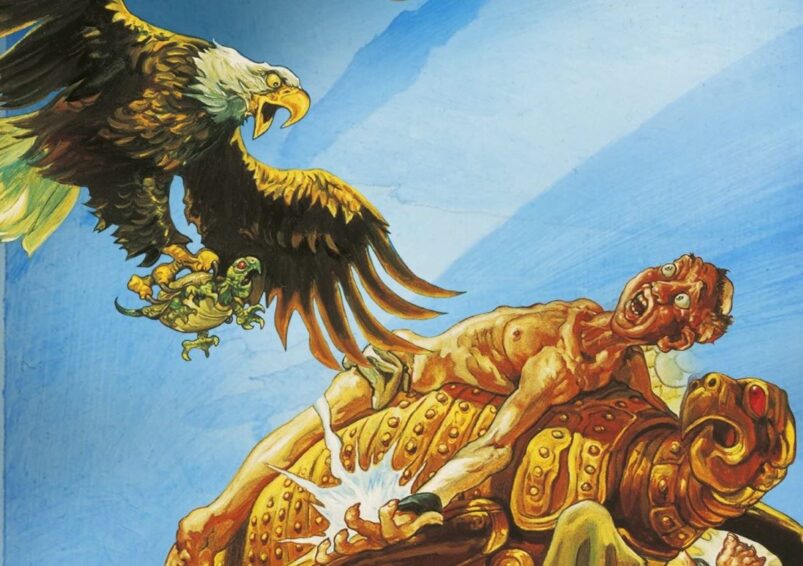Every Discworld fan has their own strong opinions on which books people new to the series should begin with, and the beauty of Discworld is that none of those opinions are really wrong. The only time such guides make me a bit itchy is when fans are so unnecessarily dismissive of some of the older stories – the early novels all have their place and are important for establishing the themes of the Discworld. It isn’t necessary to treat the first Disc adventures so meanly, folks.
So if you’re new to Discworld and wondering exactly where to begin with the forty one book collection, take a peek at this Discworld reading guide on where to begin with Pratchett’s book universe.
Discworld For Seasoned Fantasy Readers: The Colour Of Magic
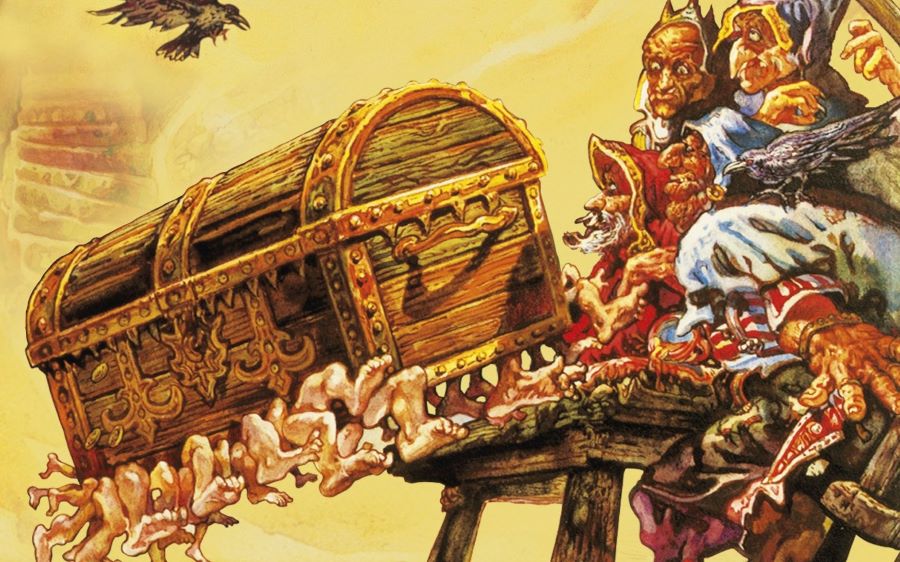
If you’re someone who likes a challenge and sees the Discworld as a glorious mountain to be climbed, then you should probably just start with The Colour Of Magic. It is the very first book in the series and, as such, usually gets a bit of a rough deal for being ragged at the edges. There’s no denying that The Colour Of Magic and its direct sequel, The Light Fantastic, are examples of Sir Terry finding his way in his own creation, and he doesn’t always hit the mark.
But if you’re someone who thinks they might really enjoy watching the evolution of the world building in Discworld – and what evolution there is – then you should start here at the very beginning. The cowardly wizard Rincewind is Sir Terry’s first hero on the Disc, and you won’t believe how fond you become of the character. The Colour Of Magic was the first Discworld book I read and, as you can probably tell, I wasn’t at all put off by the weaknesses that many fans fear will frighten away new readers.
For Solid Character Arcs: The Wee Free Men
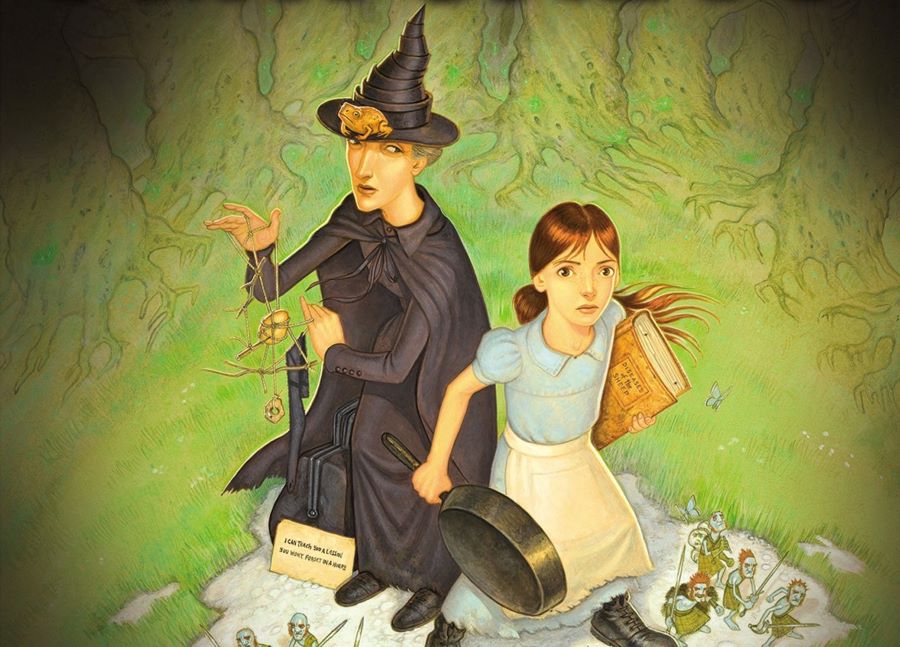
If my arm was twisted and I had to recommend one arc to start with, I’d go with Tiffany Aching’s story. Technically her arc was written with younger readers in mind, but Pratchett poured as much humour and creativity into her books as he did any of the others. He also never talks down to his young audience, which means that adult readers of these books can be safe in the knowledge that they won’t be patronised by picking them up.
The Wee Free Men is the first Tiffany book and therefore the place to start. A smart, resourceful youngster living in a family of shepherds on the Chalk, Tiffany begins this novel by beating up a river monster with a frying pan. That’s just the kind of girl she is. As Tiffany starts to learn about the world around her, the reader follows along happily, gently immersing themselves in the warm bath of Sir Terry’s signature themes and philosophies.
Oh, and also you will meet the Nac Mac Feegle – the six-inch high, blue skinned, drinking, fighting, sheep rustling pixies with hearts of gold. If any race will endear you to Discworld, it might be them.
Morally Grey Character Enthusiasts: The Wyrd Sisters
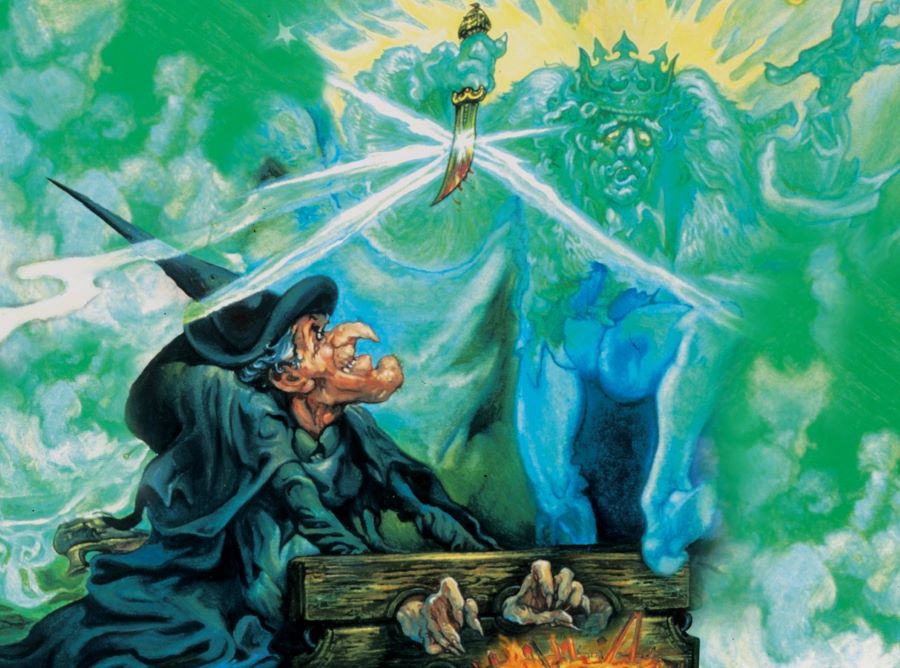
Of all his creations, I think that Sir Terry might have loved Granny Weatherwax the most. She’s the head witch – first amongst equals – and I personally think she is at the centre of Pratchett’s strongest stories. Along with the rest of her coven, Nanny Ogg and Magrat Garlick, the witches’ arc in Discworld contains the most consistently excellent novels – and they link up later with Tiffany Aching, making their great stories stretch all the way to the end of the series.
Technically, the first witches book is Equal Rites, but I’d be more inclined to tell a brand-new reader to pick up Wyrd Sisters instead. Wyrd Sisters is the earliest novel in the series that really feels like Pratchett had a handle on his world and his themes, and oh boy does the story benefit from that. It’s a parody of Macbeth with a bit of Hamlet and other miscellaneous Shakespeare references thrown in. It’s funny and clever and deceptively simple, and by the end of it you will be starting to realise that there is lot more to this fantasy series than black and white heroes and battles between good and evil.
Discworld For Readers Just Not Ready To Commit: Guards! Guards!
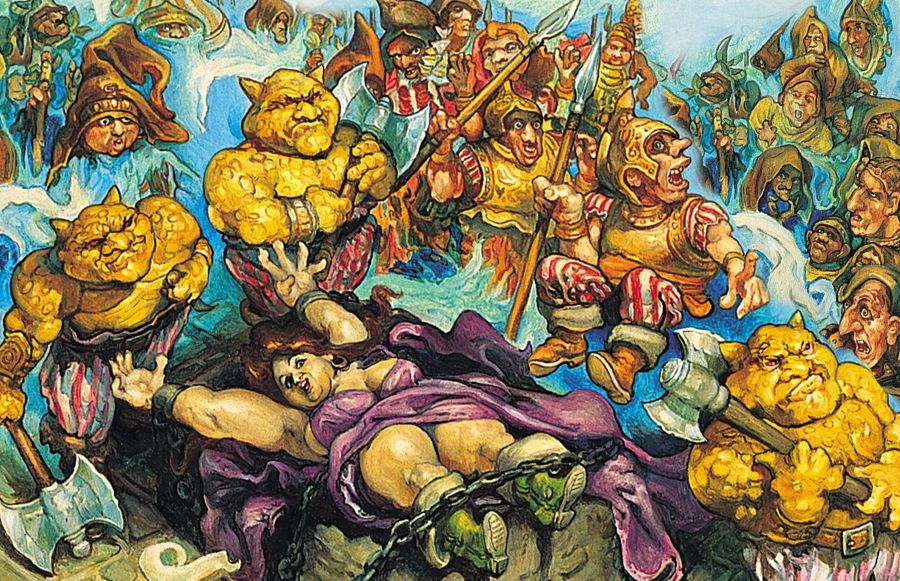
We come at last to the City Watch arc, and probably the bit of Discworld that people who don’t know much about the series might be familiar with.
Ankh-Morpork, the melting pot that is the Disc’s biggest city, is home to Sam Vimes, another of Pratchett’s most enduring creations, and his increasingly modern, forward-thinking police force. If you decided that the entire Discworld series is just too much to commit to, then I’d recommend you read the City Watch arc for a cohesive narrative that takes Sam Vimes and his most loyal men from simple, ineffective guards to a force to be reckoned with, dedicated to the safety of the city. The arc also contains some of Pratchett’s most biting and unforgiving prose, raging against the inequality and prejudice of our own world as much as the Disc’s.
It all starts though in Guards! Guards! when Carrot, a human raised by dwarfs, is sent to the city because he keeps bumping his head on the roof of the mine. Here he finds Sam Vimes, a constantly drunk yet potentially brilliant policeman, and his ragtag band of two – Sergeant Colon and Constable Nobby Nobbs. When Vimes is forced from his apathy into solving the theft of a book that will lead to the summoning of a dragon and the potential overthrow of the Patrician himself, he begins to see the world around him in a different light. Sam Vimes is the Discworld character who experiences the most personal growth over the series, and it’s a beacon of hope for anyone who has ever questioned their place in the world.
Pratchett For Mavericks: The Amazing Maurice And His Educated Rodents, Or Small Gods
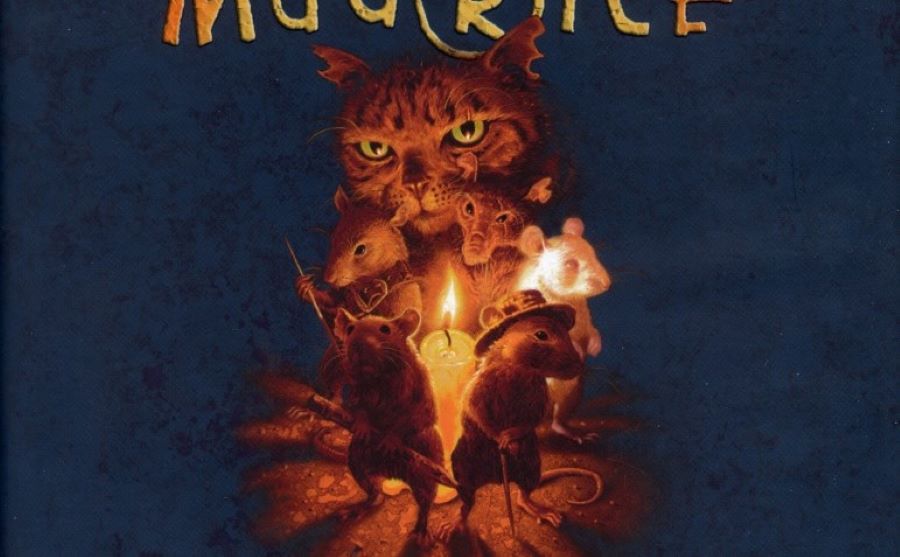
If none of the above take your fancy then you could just dive into the Disc and see what you bump your head on first. I said that The Colour Of Magic was the first book I read but technically that isn’t true – it was actually The Amazing Maurice And His Educated Rodents, which I didn’t know was a Discworld book when I read it. You could start there too, if you want a standalone Disc story that’s a pitch-black fairy tale in terms of both the humour and the content.
If you think you’d like to know more about Pratchett’s themes, then you try Small Gods. This is a another standalone, set a long time before any of the other Disc books, and concerns Brutha, the sole believer of the god, Om. Pratchett had a lot to say about religion, free will, forced conformity, belief and the power of stories, amongst many other topics – and Small Gods is a great introduction to many of them, as well as just being very funny. Brutha and Om’s relationship produces some excellent comedy gold, and they’re the most endearing one-appearance characters Pratchett ever committed to the page.
READ NEXT: Where To Start With Reading Jane Austen
Some of the coverage you find on Cultured Vultures contains affiliate links, which provide us with small commissions based on purchases made from visiting our site.
